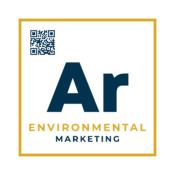

Shifting Market Demand for Sustainable Bottled Water Through Environmental Education
01. The challenges
O ne of the fastest-growing sustainable bottled water brands in the U.S. came to us looking for an environmental marketing partner who understood how to educate for long-term adoption of its new-to-market hybrid solution.
Packaged in aluminum, with the intention of being refilled for hundreds of uses, the company wanted support bringing the brand into school food and beverage markets. After working with several top advertising and marketing agencies, each agency promoted the product as sustainable, eco-friendly, and environmentally friendly, all great, all true, with very low results.
None of the campaigns and marketing efforts stood out for this unique brand and industry disruptor that brings more considerable sustainable impacts from which students and schools will benefit. Without an environmental science and educational marketing focus, the sales and marketing team had difficulty explaining the big difference between this new product and the average single-use bottle or can of water on the shelf.
The company’s owners and investors needed differentiation to create widespread awareness and adoption of this new way to consume bottled water and enter schools’ food and beverage markets with a strong presence.
We provided the team with a campaign focused on empowering K-12, University/College students, and the institutions themselves. The team was intrigued with our approach and knowledge of environmental science to help develop pivotal messaging, leveraging education as part of their marketing and sales campaigns so the brand could be introduced efficiently and successfully.
They saw A.R. Environmental Content Marketing House as the perfect fit to build out a long-term campaign, tailored messaging, content strategy, SEO strategy, editorial content, design, and execution alongside their internal teams.



02.The solutions
Our team got to work researching. We looked at the current projections of traditional beverage markets, marketing campaigns, current policy positioning and other industry adoption challenges. We came up with a strategy to connect with youth and their drive for protection wildlife from single-use plastic pollution.
Research
Within 2 weeks, our research and survey team got to work, delivering insights that provided the knowledge necessary for the optimal strategy to create a powerful campaign with a core that focused on enlisting K-12 and University/College students to make an impact at their schools to help decrease single-use plastic.
Branding and Messaging
The core messaging was upbeat, optimistic, motivating, educational, and aimed at helping K-12 and college students understand they are not to blame for waste issues. Instead, it encouraged them to recognize solid solutions where they could make a profound impact by banning wasteful single-use plastic bottled water on their campuses. It allowed students to take charge and feel good about the change they're making for future students.
Strategy
We designed an engaging, impactful environmental education-based campaign for students, enabling them to inform peers, faculty, and their families about the harms of single-use plastic and advocate for banning single-use plastic bottled water in their schools. The initiative provided a platform for nationwide collaboration, sharing resonant messages, and driving petitions to eliminate wasteful single-use plastic bottled water on campuses and in school districts.
Execution
A digital and on-campus campaign leveraging teacher and student curricula was created with a multi-channel plan and execution strategy to include social recruitment, ambassador meetings, teacher curricula, educational animation, on-campus environmental groups, presentations, and petitions executed to ban single-use plastic bottled water on campus and district-wide levels. Educational sales campaigns were created for school buyers, showing the support and requests for the brand.
03.The results
Students were inspired to make a strategic, measurable impact on single-use plastic waste on their campus. With education at the core, we found that students and teachers were quick to join the movement and spread the word to ban single-use plastic bottled water. Schools that didn’t already have safe drinking water received donations for hydration stations and reusable bottles.
The education-based campaign cleared up knowledge gaps and allowed the brand to become the educational leader for K-12, college, and university students and a leading brand in the education of the food and beverage industry.
- Support initiatives to ban single-use plastic bottled water at thousands of schools
- Increased adoption of reuse on University campuses
- Introduced accessible refillable bottles in over 1,000 school campuses and growing
- Increased sales on school campuses that encouraged students to refill
04.Opportunities
As experts in environmental science, marketing strategy, and creative campaigns, we offer a deep understanding of the interconnected ecosystem needed for impactful, collaborative initiatives. By recognizing how industry solutions and initiatives align, we identify additional opportunities to enhance outcomes. This approach creates more comprehensive campaigns that drive business development, boost sales, and strengthen marketing efforts. Here are some key opportunities uncovered through this campaign.
- Policy adoption with city governments
- Banning single-use plastics in schools across the U.S.
- Co-branded bottles with schools
- Provided a framework for other similar initiatives to eliminate plastic waste
- Increase school pride
- Reduce waste costs associated with single-use plastic
- Create lifelong brand loyalists